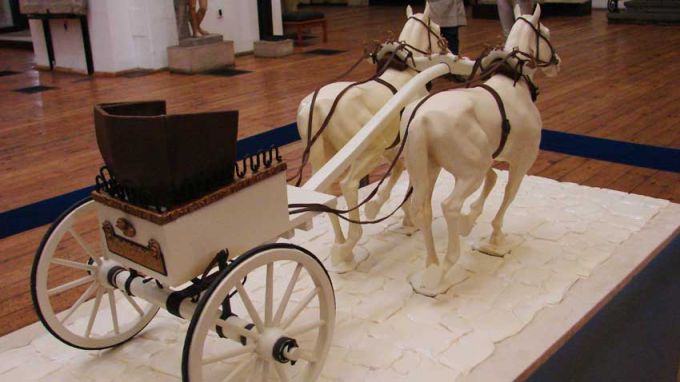
Students from the University of Montreal who read archeology and Mediterranean history of the Classical Antiquity have arrived in Bulgaria to get acquainted with the history and culture of the Thracians. They will spend three weeks in this country to later travel to Northern Greece and Turkey. „Interest in Thracian studies and in the Eastern Mediterranean in general is getting keener by the day for various reasons and one of them is that the Thracians developed a culture alternative to the Hellenic one in this region”, leading Bulgarian Thracian scholar Prof. Valeria Foll says in an interview for Radio Bulgaria. Besides, the University of Montreal has for the past 21 years held regular archeological excavations in Argilos, Greece. Originally, the village was Thracian and was later inhabited by Greek colonists.
"This university in the person of Prof. Jacques Perreault and his team has lasting interest in Thracian-Hellenic economic, cultural and political relations, Valeria Foll explains. “The course is included in the syllabus of the university. In Bulgaria the students are acquainted with the archeological artifacts, and of course, they visit a few major archeological sites in the country. This year we have focused on Central Southern and Southeastern Bulgaria, simply because we are short of time to go across the Balkan Range to the north or to travel to the Rhodope Mountains in the south. I hope that the university will keep its interest in this subject. In fact, this course has resulted from an agreement that the University of Montreal signed with the Sofia-based University of Library Studies and Information Technologies for exchange of students and professors. The students who come here are very well trained in advance and always display great curiosity where Thracian heritage is concerned.”
Prof. Valeria Foll recalls that Canadian universities have become interested in the Thracian heritage following the presentation in 1987 of a Thracian exhibition in Canada featuring monuments from the Bulgarian lands. The catalogue to that exhibition is bilingual, in French and English, and is studied by university students.
English Daniela Konstantinova
On November 30, the Bulgarian Orthodox Church honors the memory of St. Apostle Andrew . In Bulgaria the saint is known as Saint Andrey and the folk holiday as Andreevden . Saint Andrew’s Day gives the start to the series of winter holidays..
The head of the statue of Tyche, the goddess of Philippopolis, has been discovered in the Episcopal Basilica in Plovdiv, said the head of the excavations Lyubomir Merdzhanov. According to him, this is an extremely rare artefact that has been awaited..
105 years ago, on November 27, 1919, a treaty was signed in the Parisian suburb of Neuilly-sur-Seine, officially ending Bulgaria's participation in World War I (1914-1918). Historians define the document as "another national..
The head of the statue of Tyche, the goddess of Philippopolis, has been discovered in the Episcopal Basilica in Plovdiv, said the head of the..
On November 30, the Bulgarian Orthodox Church honors the memory of St. Apostle Andrew . In Bulgaria the saint is known as Saint Andrey and the folk..

+359 2 9336 661
